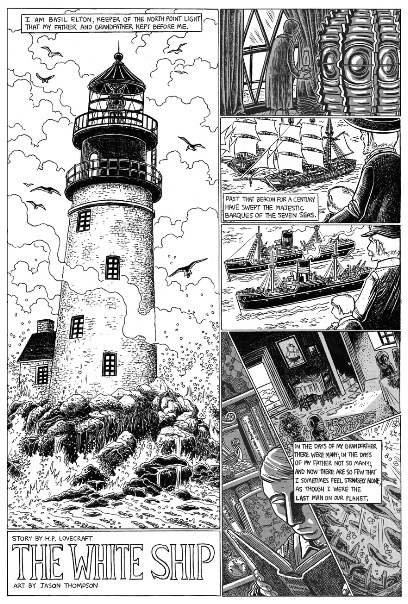Scott Herring calls for a new academic approach that might ferry the study of English Literature back from the land of limbo. It’s an approach that the history-venerating Lovecraft would have approved of…
History gives us the facts, sort of, but from literary works we can learn what the past smelled like, sounded like, and felt like, the forgotten gritty details of a lost era. Literature brings us as close as we can come to reinhabiting the past. […]
The past is not another country; it is another life. The texture of daily living is different now than in the past, more different the further back we look, until we find people whose experiences created a psychology we might find baffling or rude. Many details that once made up the daily round are lost to us because people considered them too trivial to write down. […]
Let the dead French theorists lie. Instead, literary scholars can become guides to the physical reality of the past. If you think about it, that’s what we’ve been doing in class for the last hundred years […] Once ordinary people note that we’re doing something useful again, they might stop looking at us like we’re nuts.
That seems fine when the literature in question directly describes that re-imagined past. Such an apparently straightforward approach and lack of obscurantist clutter might well appeal to both students and administrators, if not to many English Lit academics. Although I can imagine the historical approach morphing into ‘Political Correctness 101’ in many left-leaning classrooms, with the life of the author wheeled in as Exhibit A for the prosecution. I can also see a great many authors being avoided altogether, to ‘avoid offending’, if one had to focus as much on the history as on the text.
A more interesting approach might be cross-disciplinary and tailored to each student. Let each student start by discovering their specific family history and tree, gaining basic research skills along the way — then spiral out from there into the relevant fiction, social histories, economics, topography, frameworks of ideas, visual representations, etc.
But what of science fiction? One might run into problems there, with a historical approach. Not because one can’t show that these forms and stories arise partly from the events and concerns present in their time-of-writing. But it seems a tall order to ask students to discover such factors independently, as a part of answering assigned essay questions. Students would need to be: pretty good historians already; able to read widely across many books (each with only a small nugget that tangentially illuminates the story in question); and generally have top-notch online search and information-handling skills. That level of ability is unreachable for all but the top 10% of dedicated students, at a time when history is being dropped in many (UK) schools, when the USA is playing tug-o-war with history in the classroom, and when online search-skills are only very cursorily taught (if at all) in the English-speaking world.














